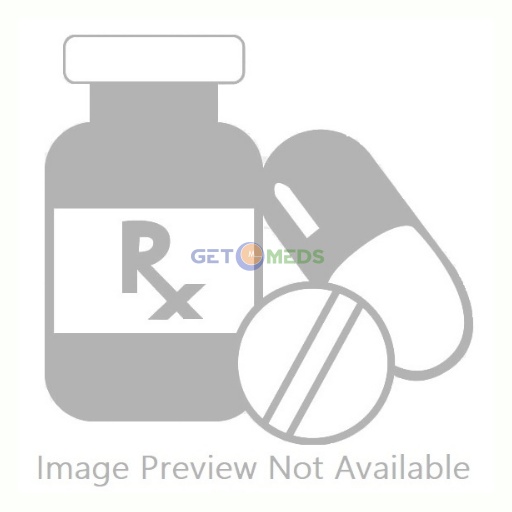-
Obiglo 0.2mg Tablet MD (Rs.58.13)
Composition: Voglibose (0.2mg)
-
Oglivose 0.2mg Tablet (Rs.60)
Composition: Voglibose (0.2mg)
-
Dilitus 0.2mg Tablet (Rs.46.88)
Composition: Voglibose (0.2mg)
-
Diboset 0.2mg Tablet (Rs.57.19)
Composition: Voglibose (0.2mg)
-
Glycebose 0.2mg Tablet (Rs.68.44)
Composition: Voglibose (0.2mg)
-
Gluvog 0.2mg Tablet (Rs.58.13)
Composition: Voglibose (0.2mg)
-
Coravog 0.2mg Tablet (Rs.56.25)
Composition: Voglibose (0.2mg)
-
Voglib 0.2 Tablet (Rs.154.69)
Composition: Voglibose (0.2mg)
-
Vogle Sim 0.2mg Tablet (Rs.46.88)
Composition: Voglibose (0.2mg)
-
Vogstar 0.2mg Tablet (Rs.70.31)
Composition: Voglibose (0.2mg)
All Details About Voglish 0.2mg Tablet
Find out detailed description, uses, directions of use, side effects, warnings and precautions, frequently asked questions about Voglish 0.2mg Tablet
Description:
Voglish 0.2mg Tablet is a medicine used to treat type 2 diabetes mellitus. It helps control the high blood sugar levels in your body after each meal. It is used when other similar medicines along with a restricted diet, are unable to control abnormally high blood sugar levels.Voglish 0.2mg Tablet should be taken just before a meal. The dose and how often you need it will be decided by your doctor so that you get the right amount to control your blood sugar levels. Do not stop taking it suddenly without consulting your doctor. If you do, your blood sugar levels may increase and put you at risk of serious complications like kidney damage and blindness.
This medicine is only part of a treatment program that should also include a healthy diet, regular exercise, and weight reduction as advised by your doctor. Monitor your blood sugar levels regularly while taking this medicine.
The most common side effects of Voglish 0.2mg Tablet include flatulence (gas), stomach pain, loss of appetite, constipation, and diarrhea. Consult your doctor if any of these side effects bother you or do not go away. This medicine by itself does not cause hypoglycemia (low blood sugar levels). However, when used in combination with other diabetes medicines (especially insulin or sulphonylureas), it can lead to hypoglycemia (low blood sugar levels). Such episodes of hypoglycemia will have to be treated by taking plain glucose. Table sugar or common sugar will not help correct low blood sugar levels if you are taking this medicine.
Earlier taking it, let your doctor know if you have any kidney or liver problems. Do not take this medicine if you have ulceration or inflammation in the bowel (eg. ulcerative colitis or Crohn’s disease). Pregnant or breastfeeding women should also consult their doctor before taking it. Please tell your doctor about all the other medicines you are taking to make sure you are safe. Avoid excessive alcohol intake while taking this medicine as it may increase the risk of hypoglycemia (low blood sugar levels).
Uses:
Directions For Use:
Take this medicine in the dose and duration as advised by your doctor. Swallow it as a whole. Do not chew, crush or break it. Voglish 0.2mg Tablet is to be taken on an empty stomach.Side Effects:
Most side effects do not require any medical attention and disappear as your body adjusts to the medicine. Consult your doctor if they persist or if you’re worried about themOrdinary side effects of Voglish
- Skin rash
- Flatulence
- Abdominal pain
- Diarrhea
Warning & Precautions:
FAQs:
Does Voglish 0.2mg Tablet cause weight loss?
How should you take Voglish 0.2mg Tablet?
Written by:
Dr. T. Sharmila Krishna
M.B.B.S., MD (Biochemistry)
Reviewed by:
Dr. Sureshbabu Yadav
M.B.B.S., DIP.DIAB, F.R.S.H
Disclaimer:
Getomeds primary intention is to ensure that its consumers get information that is reviewed by experts, accurate, and trustworthy. The information and contents of this website are for informational purposes only. They are not intended to be a substitute for professional medical advice, diagnosis, or treatment. Please seek the advice of your doctor and discuss all of your concerns about any disease or medication. Do not disregard or postpone seeking professional medical advice because of something you read on Getomeds. Our mission is to support, not replace, the doctor-patient relationship.
